New Report Highlights the Four Skill Sets Transforming Work
Emerging skills once limited to Silicon Valley are now spreading to jobs on Main Street
Philadelphia, PA, Washington DC, Hoboken, NJ- December 1, 2022—According to a new report from the Burning Glass Institute, the Business-Higher Education Forum, and Wiley, 1 in 8 job postings now require one of the 4 skill sets that are the growing the fastest and spreading the most rapidly across sectors. Together, these four emerging skill sets—Artificial Intelligence/Machine Learning, Cloud Computing, Product Management, and Social Media—unlocked over 5 million job postings last year, with demand growing almost 7 times faster than the job market overall.
“How Skills Are Disrupting Work” analyzed hundreds of millions of job postings from 2015 through 2021 to track critical changes in the job market. The report indicated that emerging technologies, once on the frontiers of innovation, are moving from Silicon Valley to Main Street. 1 in 5 manufacturing sector postings and even 1 in 10 government job openings now require skills in one of these four areas, while the percentage of jobs in these fields located outside tech hubs has climbed steeply. For workers, this surge in demand means a wide scope of opportunity and premium pay. By contrast, employers struggle to hire for these skills.
“Overall, 37% of the average occupation’s top skills have changed over the past five years alone. That means that the biggest disruptions in the future of work may not be about jobs being automated away but rather about familiar jobs requiring unfamiliar skills,” said Matt Sigelman, president of the Burning Glass Institute and one of the report’s authors. “Employers must ask: Is the workforce we have the workforce we will need in the future?”
Other key findings:
- Work increasingly demands skills from across domains. Over the past decade, the share of marketing jobs that require data skills has grown 50 percent, while the number of occupations with significant demand for creative skills has risen fourfold, including many tech jobs.
- Foundational skills such as communications, management, and writing prove dramatically more durable over the course of a career than the high-growth skills commanding the greatest premiums. TensorFlow, a highly sought skill in today’s market, has the lowest expected durability of any skill.
- Automation is increasingly core to many jobs as workers leverage advanced technologies to undertake previously manual tasks. At the same time, automation is also driving significant declines in many occupations, such as web developers, where so-called “low code” platforms are eroding the need for specialists.
- Acquiring emerging skills pays off. Even at the entry-level, those with AI/ML skills earn $15,000 more than others in the same roles. After 8 years, those with social media skills earn more than twice their starting pay and only 11 percent less than peers with machine learning skills.
- Disruptive skills haven’t disrupted degrees. Most jobs requesting emerging skills also require a college degree despite serious talent shortages.
To rise to the moment, according to the report, educators will need to create new and/or update existing programs of study that prepare learners for the roles these skills define and ensure that all students have the opportunity to acquire capabilities that will be increasingly foundational in the new economy. At the same time, employers will need to identify new pipelines of talent and invest in upskilling or reskilling incumbent workers.
Such efforts are increasingly underway. For example, the San Diego State University Cloud Security and Governance Certificate and the West Virginia University Digital and the Social Media graduate certificate, both profiled in the report, are just two examples of how education and business leaders are responding to the demand for Cloud and Social Media skills.
“Students and workers seeking to advance will need the leadership and guidance of schools and employers in navigating this unfamiliar terrain,” said Josh Jarrett, chief strategy officer at Wiley. “With this inaugural report, businesses and higher educational institutions can harness large-scale data analysis to develop pathways to guide them in supporting workers and students. The future belongs to those who maintain and embrace these disruptive skills.”
“It is a critical journey that we undertake for our employers, our learners, and our national competitiveness, and this report will help lead the way,” said Brian Fitzgerald, CEO of the Business Higher-Education Forum. “We are leveraging the current landscape to understand our future reality. What skills will come to dominate the market, and what types of talent will go from niche to most needed? Most importantly, what skills should tomorrow's workers be acquiring today?”
To read the full report in full, please visit bhef.com/skills.
ABOUT THE BURNING GLASS INSTITUTE
The Burning Glass Institute advances data-driven research and practice on the future of work and of workers. Situated at the intersection of learning and work, the organization collaborates with educators, employers, and policymakers to develop solutions that build mobility, opportunity, and equity through skills. For more information, visit https://www.burningglassinstitute.org/.
ABOUT THE BUSINESS HIGHER-EDUCATION FORUM
The Business-Higher Education Forum is a 40-year-old nonprofit membership organization that connects higher education institutes to business talent demand. Corporate CEOs and university presidents join BHEF to anticipate skill needs and improve pathways between higher education and workforce. For more information, visit https://www.bhef.com.
ABOUT WILEY
Wiley is one of the world’s largest publishers and a global leader in scientific research and career-connected education. Founded in 1807, Wiley enables discovery, powers education, and shapes workforces. Through its industry-leading content, digital platforms, and knowledge networks, the company delivers on its timeless mission to unlock human potential. Visit us at https://www.wiley.com.
